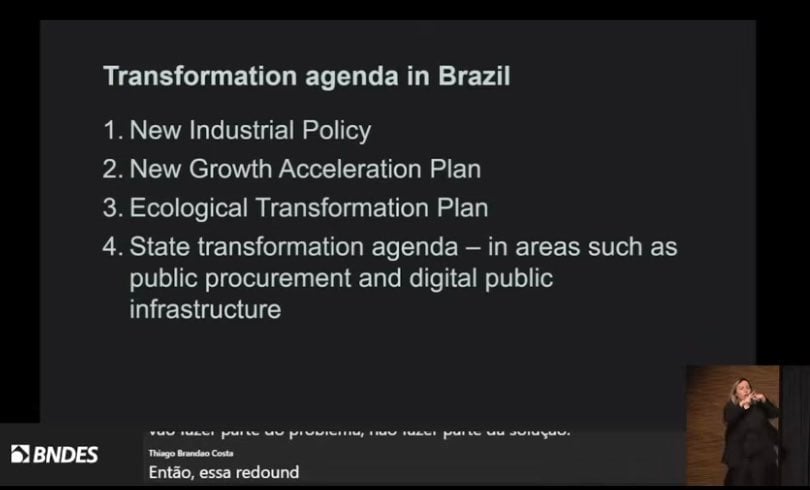#11 Brazil's G20 agenda; Tornadoes; Summer book club!
Book Club!
Hello! This is only a brief brief dispatch for #11 this week before we get back to speed next week. We have a very quick look at the G20 wealth tax.
Our Planetary Mine zoom bookclub is coming up this weekend:
Monday July 29, 2024 08:30AM Eastern Time (US and Canada).
Translate it to your time zone here and join us at this zoom link.
Ahead of the live discussion, chapters are being discussed in our Discord server which all of our readers are welcome to join. And we recommend Thea Riofrancos’ review of Planetary Mine.
Don’t forget the discount codes from publisher Verso, who have generously given us these discount codes for you to buy either an epub or a physical copy of the book: Polycrisis-30: 30% off any of the bookclub books
Polycrisis-40: 40% off if you buy 2
Polycrisis-50: 50% off if you by 3 or more
The list of upcoming books is here.
Global wealth tax at the G20
Brazil is the host of both this year’s G20 and next year’s COP, and even ahead of either of these, anticipation and hope that the country under Lula would provide regional and global leadership on south-south solidarity and climate justice. A showstopper is the possibility of members moving toward a global wealth tax on billionaires. This was floated by Brazil’s finance minister Fernando Haddad at the G20 finance ministers’ meeting in March with the help of French academic Gabriel Zucman. It consists of a minimum 2 percent levy on the world’s 3,000 richest billionaires which could raise $250 billion globally per year. It looks like being included again in the communique from this week’s meeting in Rio de Janeiro, even though — in what won’t surprise anyone — Germany’s finance minister Christian Lindner and the US’s Janet Yellen are not very supportive at all. (Zucman, according to Politico, considered that just getting a commitment to keep discussing it would be sufficient progress, as it was not even on the agenda a few months ago.)
Industrial policy measures can be unsuccessful for all sorts of reasons. Mariana Mazzucato gave a lecture (youtube) earlier in the week in Sao Paolo as a member of Brazil’s TF Clima group of experts advancing action on climate change, in which she described how industrial policy can be prone to corruption and crony capitalism. She cited Brazil’s support for agribusiness as a prime example of industrial policy that is part of problem, and said public banks in her home country of Italy too are corrupt. She spoke favourably of Brazil’s development bank, BNDES, and has written a paper comparing BNDES with Germany’s KFW noting how German public support to the steel sector was conditional on making green steel. Mazzucato has been advising the Brazilian government on their missions to deliver national tranformation. We at Polycrisis wrote in 2022 “a Lula election is better for the planetary climate than anything that happens at COPs”

Hurricane season
This 2024 hurricane season is not kidding around. Gaemi has killed at least 21 people. This estimate from CoreLogic about possible damages sounds wild: "Hurricane season is not expected to soften from here… The number of properties graded at a very high or even greater risk was slightly under 15 million, with the reconstruction cost projected to be $4.2 trillion; the subset of properties at extreme risk consisted of 6.4 million homes with a replacement cost of $1.7 trillion.” Approximately 7.7 million of these homes have an additional exposure to storm surge because of their location near the Atlantic Ocean coast, with potential replacement cost of $2.3 trillion."
The National Oceanic and Atmospheric Administration has predicted an active hurricane season with an estimated potential combined reconstruction cost for 2024 storms of $10.8 trillion.
When people talk about decreasing overall numbers of tropical cyclones anticipated by the IPCC, remember these two things:
Hurricanes and typhoons are just different labels for what weather and climate scientists usually call “tropical cyclones”.
The confidence in how tropical cyclones will change in the future is low. But there is evidence that the medium-to-strong ones are already becoming more frequent, and are moving “polewards”, further north and south from the tropics. More here from Carbon Brief.
That’s it for now. We’ll be back next week looking at several things including, perhaps, country platforms and other odd things to come out of the G20 meetings; the history of development campaigning; and Europe’s funding shortfall/omni-lemma. Until then you can email us here or here.
Add a comment: